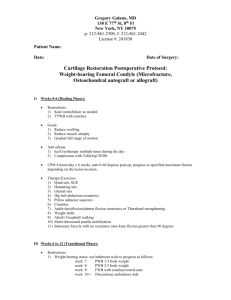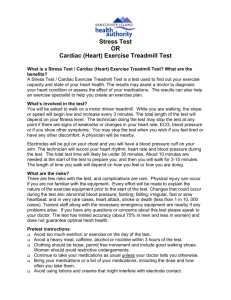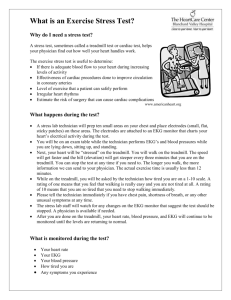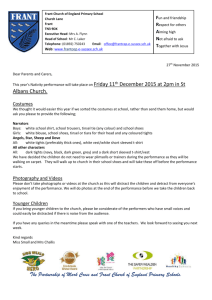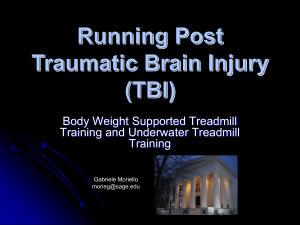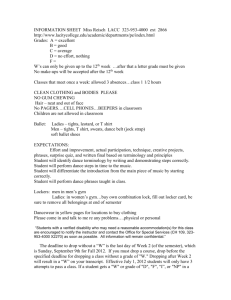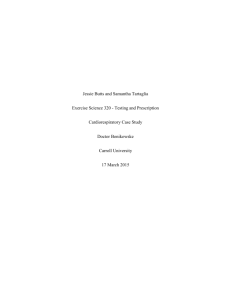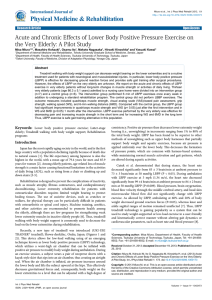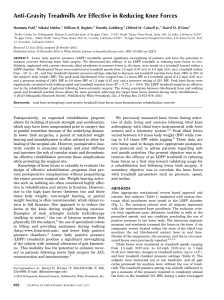CONSENT FORM FOR HUMAN PARTICIPANTS IN RESEARCH
advertisement
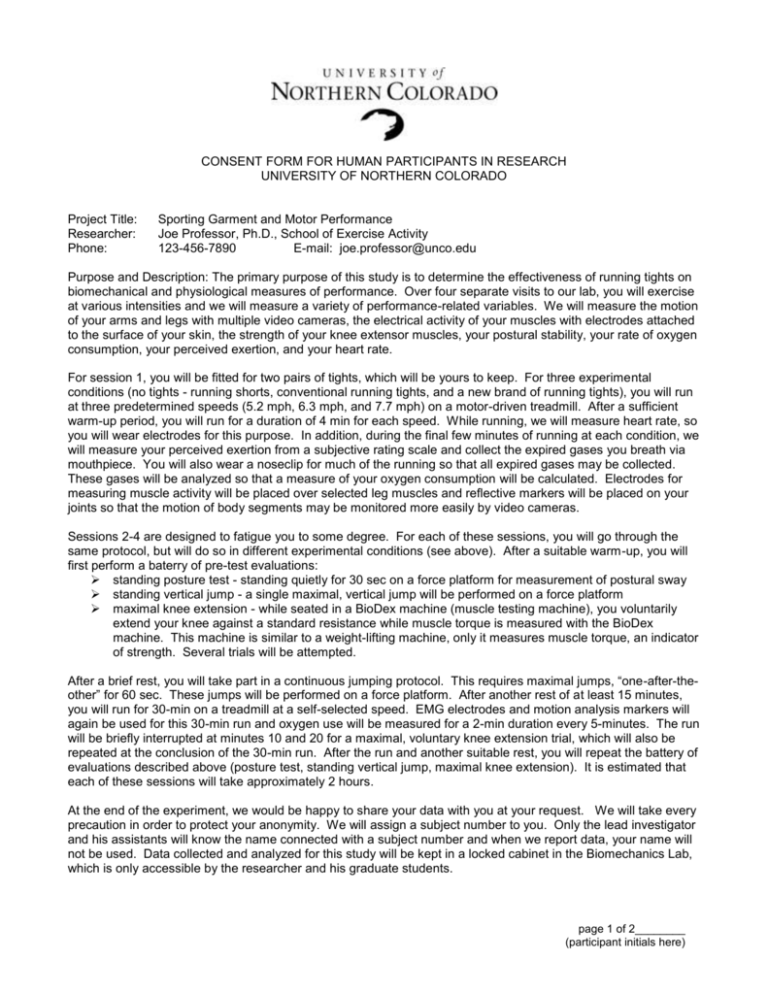
CONSENT FORM FOR HUMAN PARTICIPANTS IN RESEARCH UNIVERSITY OF NORTHERN COLORADO Project Title: Researcher: Phone: Sporting Garment and Motor Performance Joe Professor, Ph.D., School of Exercise Activity 123-456-7890 E-mail: joe.professor@unco.edu Purpose and Description: The primary purpose of this study is to determine the effectiveness of running tights on biomechanical and physiological measures of performance. Over four separate visits to our lab, you will exercise at various intensities and we will measure a variety of performance-related variables. We will measure the motion of your arms and legs with multiple video cameras, the electrical activity of your muscles with electrodes attached to the surface of your skin, the strength of your knee extensor muscles, your postural stability, your rate of oxygen consumption, your perceived exertion, and your heart rate. For session 1, you will be fitted for two pairs of tights, which will be yours to keep. For three experimental conditions (no tights - running shorts, conventional running tights, and a new brand of running tights), you will run at three predetermined speeds (5.2 mph, 6.3 mph, and 7.7 mph) on a motor-driven treadmill. After a sufficient warm-up period, you will run for a duration of 4 min for each speed. While running, we will measure heart rate, so you will wear electrodes for this purpose. In addition, during the final few minutes of running at each condition, we will measure your perceived exertion from a subjective rating scale and collect the expired gases you breath via mouthpiece. You will also wear a noseclip for much of the running so that all expired gases may be collected. These gases will be analyzed so that a measure of your oxygen consumption will be calculated. Electrodes for measuring muscle activity will be placed over selected leg muscles and reflective markers will be placed on your joints so that the motion of body segments may be monitored more easily by video cameras. Sessions 2-4 are designed to fatigue you to some degree. For each of these sessions, you will go through the same protocol, but will do so in different experimental conditions (see above). After a suitable warm-up, you will first perform a baterry of pre-test evaluations: standing posture test - standing quietly for 30 sec on a force platform for measurement of postural sway standing vertical jump - a single maximal, vertical jump will be performed on a force platform maximal knee extension - while seated in a BioDex machine (muscle testing machine), you voluntarily extend your knee against a standard resistance while muscle torque is measured with the BioDex machine. This machine is similar to a weight-lifting machine, only it measures muscle torque, an indicator of strength. Several trials will be attempted. After a brief rest, you will take part in a continuous jumping protocol. This requires maximal jumps, “one-after-theother” for 60 sec. These jumps will be performed on a force platform. After another rest of at least 15 minutes, you will run for 30-min on a treadmill at a self-selected speed. EMG electrodes and motion analysis markers will again be used for this 30-min run and oxygen use will be measured for a 2-min duration every 5-minutes. The run will be briefly interrupted at minutes 10 and 20 for a maximal, voluntary knee extension trial, which will also be repeated at the conclusion of the 30-min run. After the run and another suitable rest, you will repeat the battery of evaluations described above (posture test, standing vertical jump, maximal knee extension). It is estimated that each of these sessions will take approximately 2 hours. At the end of the experiment, we would be happy to share your data with you at your request. We will take every precaution in order to protect your anonymity. We will assign a subject number to you. Only the lead investigator and his assistants will know the name connected with a subject number and when we report data, your name will not be used. Data collected and analyzed for this study will be kept in a locked cabinet in the Biomechanics Lab, which is only accessible by the researcher and his graduate students. page 1 of 2________ (participant initials here) Potential risks in this project are minimal. As with any exercise, risks include fatigue, localized muscle soreness, and the potential for strains and sprains of joints of the lower extremity. In addition, treadmill running poses risks because if you lose focus on the task you may fall. To counter this risk, a spotter will be stationed at all times within easy reach of a treadmill stop button and you will be allowed to walk and run at lower speeds before the treadmill belt reaches test speed. We will make sure that you are comfortable running on a treadmill before we begin the test. In addition, if you become too fatigued or uncomfortable, you may choose to stop the test at any time. In the unlikely event of an injury, we will contact appropriate medical authorities. Upon completion, you will be permitted to keep the two pairs of running tights you wear for this study and you will be payed $50. Coaches, athletes, sports medicine clinicians, and athletic clothing manufacturers will be the populations who most benefit from the results of this study. This pilot study will be followed by a more elaborate study which measures more variables associated with athletic performance and the influence of sport-specific clothing. Participation is voluntary. You may decide not to participate in this study and if you begin participation you may still decide to stop and withdraw at any time. Your decision will be respected and will not result in loss of benefits to which you are otherwise entitled. Having read the above and having had an opportunity to ask any questions, please sign below if you would like to participate in this research. A copy of this form will be given to you to retain for future reference. If you have any concerns about your selection or treatment as a research participant, please contact the Office of Sponsored Programs, Kepner Hall, University of Northern Colorado Greeley, CO 80639; 970-351-2161. Subject’s Signature Date Researcher’s Signature Date page 2 of 2
